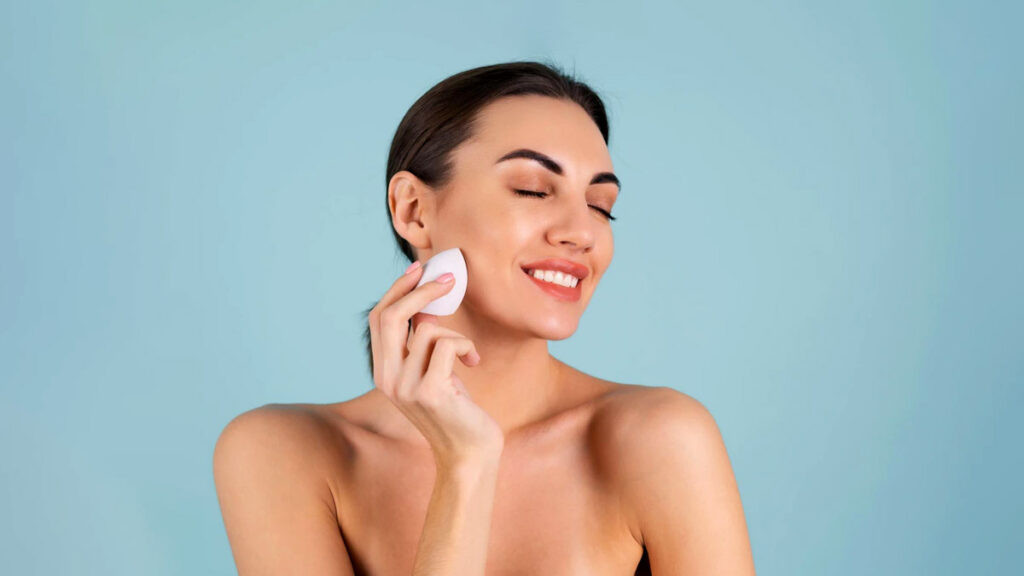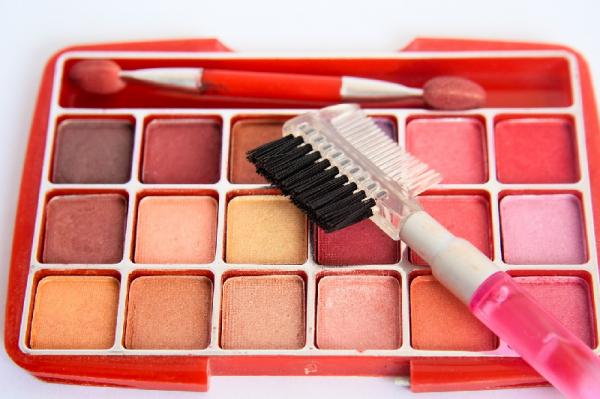Makeup is a great way to enhance your features and express your style, but it can be frustrating when it starts to crack, flake, or settle into fine lines throughout the day. Cracking makeup can make you look less polished and can be a sign that something isn’t quite right with your makeup application or skincare routine. But what exactly causes makeup to crack? In this article, we’ll explore the reasons behind cracked makeup and provide tips on how to prevent it.

1. Dry Skin
One of the most common reasons makeup cracks is dry skin. When your skin is dehydrated, it becomes flaky and uneven, making it difficult for foundation or other products to sit smoothly on your face. As a result, the makeup can settle into fine lines and patches, causing it to crack or look patchy.
To prevent this, it’s essential to keep your skin hydrated. Use a good moisturizer suitable for your skin type before applying makeup. If you have very dry skin, consider using a hydrating primer or oil to create a smooth base for your makeup.
For more tips on preparing your skin for makeup, check out our article on how to prepare your face for makeup application
2. Incorrect Foundation Choice
Another major culprit for cracked makeup is choosing the wrong foundation for your skin type. If you have dry skin and use a matte or full-coverage foundation designed for oily skin, your makeup may crack throughout the day due to a lack of moisture and the tendency for these formulas to dry out the skin. On the other hand, if you have oily skin and opt for a dewy foundation, it can cause your makeup to slide off or become greasy.
To avoid cracking, choose a foundation that matches your skin type. For dry skin, opt for hydrating foundations or tinted moisturizers. For oily skin, choose oil-free foundations that offer a matte finish. Additionally, avoid using too many layers of foundation, as this can create a thick, heavy texture that cracks more easily.
3. Not Using a Primer
Primer is often an overlooked step, but it’s one of the key products to help keep your makeup from cracking. A good primer acts as a barrier between your skin and makeup, filling in pores and smoothing out texture. Without primer, foundation and other products can sink into the skin, especially if you have larger pores or uneven texture.
If you skip this step, your makeup might not adhere well to your skin, resulting in cracking and uneven wear. Make sure to use a primer that’s formulated for your skin type. For example, pore-filling primers work well for those with larger pores, while hydrating primers can help those with dry skin maintain a smooth finish.
4. Overapplying Products
Sometimes, less is more when it comes to makeup. Applying too many layers of foundation, concealer, or powder can cause the makeup to look thick, cakey, and prone to cracking. Each layer adds more product to your face, and as the day progresses, it may start to separate and crack, especially around areas that experience more movement, like the eyes or mouth.
To prevent this, apply makeup in thin layers. Start with a light coverage foundation or BB cream and build up gradually if needed. Be sure to blend each layer thoroughly to avoid excess product buildup. Additionally, try using a setting spray to lock everything in place without overloading your skin with powder.
5. Inadequate Setting Powder or Mist
Setting powder and setting spray are essential for ensuring that your makeup stays in place throughout the day. If you fail to set your makeup properly, it may shift, crease, or crack, especially in areas that experience more friction, like the forehead or around the eyes. Setting powder helps to absorb excess oil and keep everything matte, while setting spray provides a long-lasting finish.
Make sure to use a setting powder that suits your skin type. For dry skin, use a light, finely-milled powder to avoid looking cakey. For oily skin, use a more mattifying setting spray or powder to keep your makeup intact. Always set your makeup with a light mist of setting spray to lock everything in place.
6. Environmental Factors
External factors like heat, humidity, and pollution can also affect your makeup. If you’re spending time in hot, humid environments, your makeup may begin to melt or crack. This is especially true for oily skin types, where sweat and excess oil can break down foundation and concealer.
To prevent this, consider using makeup products that are designed for long-lasting wear or are resistant to heat and humidity. Look for foundations and setting sprays labeled “long-wear” or “humidity-resistant.” Additionally, try to blot your face throughout the day with oil-absorbing sheets to prevent your makeup from breaking down.
7. Not Removing Makeup at Night
Another potential cause of cracked makeup is failing to properly cleanse your face at night. Leaving makeup on your skin overnight can lead to clogged pores, dullness, and dehydration, which can affect your skin’s texture and cause makeup to crack the next time you apply it. Proper cleansing also ensures that your skin is properly prepped and hydrated before makeup application.
Always cleanse your skin thoroughly before bed using a gentle cleanser that suits your skin type. Follow up with a moisturizer and any other nighttime treatments to keep your skin hydrated and ready for makeup the next day.
Conclusion
Cracked makeup can be frustrating, but with the right preparation and products, you can prevent it from happening. Start by choosing the right foundation and primer for your skin type, stay hydrated, and avoid overapplying products. Additionally, use setting powder or spray to lock everything in place and protect your makeup from environmental factors. With these simple steps, you can achieve a smooth, long-lasting makeup look that won’t crack or fade throughout the day.
For more tips on preparing your face for makeup, be sure to check out our guide on how to prepare your face for makeup application. To explore more makeup tips and product recommendations, check out this Best Makeup Tips For Women Over 50.

